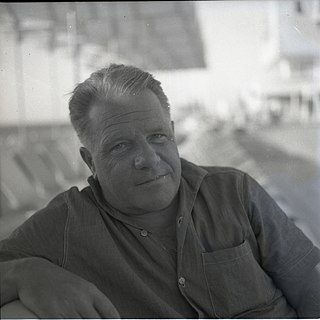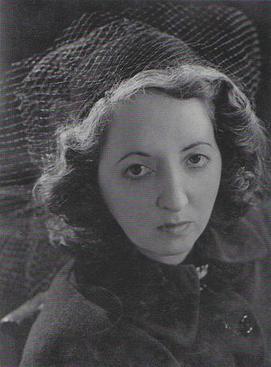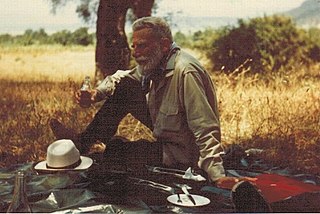
Lawrence George Durrell was an expatriate British novelist, poet, dramatist, and travel writer. He was the eldest brother of naturalist and writer Gerald Durrell.

Lady Chatterley's Lover is the final novel by English author D. H. Lawrence, which was first published privately in 1928, in Florence, Italy, and in 1929, in Paris, France. An unexpurgated edition was not published openly in the United Kingdom until 1960, when it was the subject of a watershed obscenity trial against the publisher Penguin Books, which won the case and quickly sold three million copies. The book was also banned for obscenity in the United States, Canada, Australia, India and Japan. The book soon became notorious for its story of the physical relationship between a working-class man and an upper-class woman, its explicit descriptions of sex and its use of then-unprintable profane words. It entered the public domain in the United States in 2024.

Gerald Malcolm Durrell OBE was a British naturalist, writer, zookeeper, conservationist, and television presenter. He was born in Jamshedpur in British India, and moved to England when his father died in 1928. In 1935 the family moved to Corfu, and stayed there for four years, before the outbreak of World War II forced them to return to the UK. In 1946 he received an inheritance from his father's will that he used to fund animal-collecting trips to the British Cameroons and British Guiana. He married Jacquie Rasen in 1951; they had very little money, and she persuaded him to write an account of his first trip to the Cameroons. The result, titled The Overloaded Ark, sold well, and he began writing accounts of his other trips. An expedition to Argentina and Paraguay followed in 1953, and three years later he published My Family and Other Animals, an account of his years in Corfu. It became a bestseller.

The Alexandria Quartet is a tetralogy of novels by British writer Lawrence Durrell, published between 1957 and 1960. A critical and commercial success, the first three books present three perspectives on a single set of events and characters in Alexandria, Egypt, before and during the Second World War. The fourth book is set six years later.

Wilbur Addison Smith was a Northern Rhodesian-born British-South African novelist specializing in historical fiction about international involvement in Southern Africa across four centuries.

Olivia Mary Manning was a British novelist, poet, writer, and reviewer. Her fiction and non-fiction, frequently detailing journeys and personal odysseys, were principally set in the United Kingdom, Europe, and the Middle East. She often wrote from her personal experience, though her books also demonstrate strengths in imaginative writing. Her books are widely admired for her artistic eye and vivid descriptions of place.

Jacques Lacarrière was a French writer, born in Limoges. He studied moral philosophy, classical literature, and Hindu philosophy and literature. Professionally, he was known as a prominent critic, journalist, and essayist.

Margaret Isabel Mabel "Margo" Durrell was the younger sister of novelist Lawrence Durrell and elder sister of naturalist, author, and TV presenter Gerald Durrell, who lampoons her character in his Corfu trilogy of novels: My Family and Other Animals, Birds, Beasts and Relatives, and The Garden of the Gods.

Theodore Philip Stephanides was a Greek-British doctor and polymath, best remembered as the friend and mentor of Gerald Durrell. He was also known as a naturalist, biologist, astronomer, poet, writer and translator.

Justine, published in 1957, is the first volume in Lawrence Durrell's literary tetralogy, The Alexandria Quartet. The tetralogy consists of four interlocking novels, each of which recounts various aspects of a complex story of passion and deception from differing points of view. The quartet is set in the Egyptian city of Alexandria in the 1930s and 1940s. The city itself is described by Durrell as becoming as much of a complex character as the human protagonists of the novels. Since first becoming available to the public and reviewers in 1957, Justine has inspired what has been called "an almost religious devotion among readers and critics alike." It was adapted into the film of the same name in 1969.

Clea, published in 1960, is the fourth volume in The Alexandria Quartet of novels by the British author Lawrence Durrell. Set in Alexandria, Egypt, in the 1930s and 1940s, the first three volumes tell the same story from different points of view, and Clea relates subsequent events.

Monsieur, or The Prince of Darkness (1974), is the first volume in Lawrence Durrell's The Avignon Quintet. Published from 1974 to 1985, this sequence of five interrelated novels explore the lives of a group of Europeans before, during, and after World War II. Durrell uses many of the experimental techniques of metafiction that he had integrated into his Alexandria Quartet, published 1957 to 1960. He described the later quintet as a quincunx.
The Avignon Quintet is a five-volume series of novels by British writer Lawrence Durrell, published between 1974 and 1985. The novels are metafictional. He uses developments in experimental fiction that followed his The Alexandria Quartet (1957-1960). The action of the novels is set before and during World War II, largely in France, Egypt, and Switzerland.

The Black Book is a novel by Lawrence Durrell, published in 1938 by the Obelisk Press.

Livia, or Buried Alive (1978), is the second volume in British author Lawrence Durrell's The Avignon Quintet, published from 1974 to 1985. Durrell has described the novels as "roped together like climbers on a rockface, but all independent. .. a series of books through which the same characters move for all the world as if to illustrate the notion of reincarnation." The description of this form for the quintet actually appears in Livia. The first novel of the quincunx, Monsieur, received the James Tait Black Memorial Prize in 1974.

Constance, or Solitary Practices is the central volume of the five novels of Lawrence Durrell's The Avignon Quintet, published from 1974 to 1985. It was nominated for the Booker Prize in 1982. Involving some of the characters from the preceding Livia, the novel also introduces new ones. It is set before and during World War II, in France, Egypt, Poland and Switzerland.

Quinx, or The Ripper's Tale is the 5th and final volume in Lawrence Durrell's "quincunx" of novels, The Avignon Quintet, published from 1974 to 1985. It explores the activities of Constance, Aubrey Blanford, Robin Sutcliffe, Lord Galen, and most of the other surviving characters as they return to Avignon and Provence in the immediate aftermath of World War II.
A pentalogy is a compound literary or narrative work that is explicitly divided into five parts. Although modern use of the word implies both that the parts are reasonably self-contained and that the structure was intended by the author, historically, neither was necessarily true: in fact, a pentalogia could be assembled by a later editor, just as Plotinus's Enneads were arranged in nines by Porphyry in order to create an overarching structure of six which would express the idea of perfection.
Richard Leslie Beswetherick Pine is the author of critical works on the Irish playwright Brian Friel, the Anglo-Irish novelist Lawrence Durrell, and aspects of art music in Ireland. He worked for the Irish national broadcaster RTÉ Raidió Teilifís Éireann before moving to Greece in 2001 to found the Durrell School of Corfu, which he directed until 2010. Since 2009 he has written a regular column on Greek affairs in The Irish Times and is also an obituarist for The Guardian.

Gordon Bowker was an English journalist and academic who wrote biographies of Malcolm Lowry, Lawrence Durrell, George Orwell and James Joyce.

















